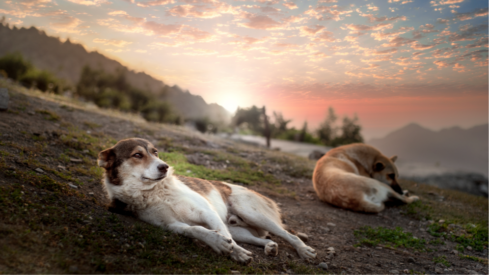Crisis shapes the Iranian pet food market

The pet food market in Iran has been moving towards self-sufficiency since early 2020, when the government completely banned import supplies. But quite a few foreign brands are still making their way into the country through smuggling channels.
No legal imports
“The situation in the Iranian market has not changed much during 2021,” commented Dr. Jalaleddin Mirfakhrai, director of J.M. Vet Group, which had been the biggest importer on Iran’s pet food market before the restrictions were introduced.
“Import of pet food is still forbidden, so there is no official legal import at all. However, black market import is stronger than ever, and you can easily find quite a good range of brands and products,” Dr. Mirfakhrai said, adding that prices for smuggled products are 200-300% higher than the price of the same brands on foreign markets.
How it started
The turbulence on the Iranian pet food market began in November 2018, when Donald Trump reinstated the economic sanctions against Iran that had been withdrawn following the signing of a so-called nuclear deal, under which the country promised to curb its enrichment of uranium, a metal used to make nuclear weapons.
In response to the sanctions, the Iranian Industry and Trade Ministry slapped an import ban on 1,339 goods that could be produced within the country instead. Prohibited imports included home appliances, textiles, footwear, leather products, furniture, healthcare products, some machinery – and pet food.
The COVID-19 pandemic has aggravated the problem of a lack of foreign currency in Iran, making the prospects of import resumption extremely vague.
Black market takes over
“Pet food sales in Iran were booming before the economic sanctions were introduced, with imports reaching all-time highs and every forecast projecting further rapid growth,” said Savis Ansani, director of the local consulting agency Persian Pet International. With foreign brands – primarily from the EU – dominating the market, import restrictions plunged it into chaos.
“The very existence of smuggling, and a lack of control over black market imports, is very disappointing for market players,” said Dr. Mirfakhrai. “The Iranian government banned pet product imports in order to stop money leaving the country. Now, this money is being transferred to the black market, and there is no government control over it. When import was legal, companies like mine used to import goods and pay customs fees.”
“It is bizarre, and I do not understand the philosophy behind this,” he added.
The bright side
The sanctions did push local businesses to expand production capacities. “There were only a couple of pet food producers in Iran before the sanctions,” said Ansani. He admitted that the quality of their products left a lot to be desired.
The tables have turned now. Dr. Mirfakhrai says that new producers are emerging in Iran “on a weekly basis”, adding that at least one or two companies are engaged in R&D projects aiming to produce pet food with sufficient quality.
Local businesses expanding
Nutripet is believed to be one of the biggest pet food producers in Iran. Dr. Navid Nasirian, director of Nutripet, said that the sanctions helped his company to nearly triple production to 3,000 tonnes. Before the sanctions, Agras Pet Food, Monge and Purina were the largest suppliers of wet pet food in Iran, while Bosch and Royal Canin were the biggest in dry pet food. Although no statistical data is available, these are the main brands that are being smuggled into the country now.
J.M. Vet Group also had to switch to distributing local pet food, under the Farafood brand. The company produces three lines of dog food and plans to expand its range with cat food towards the end of the year.
